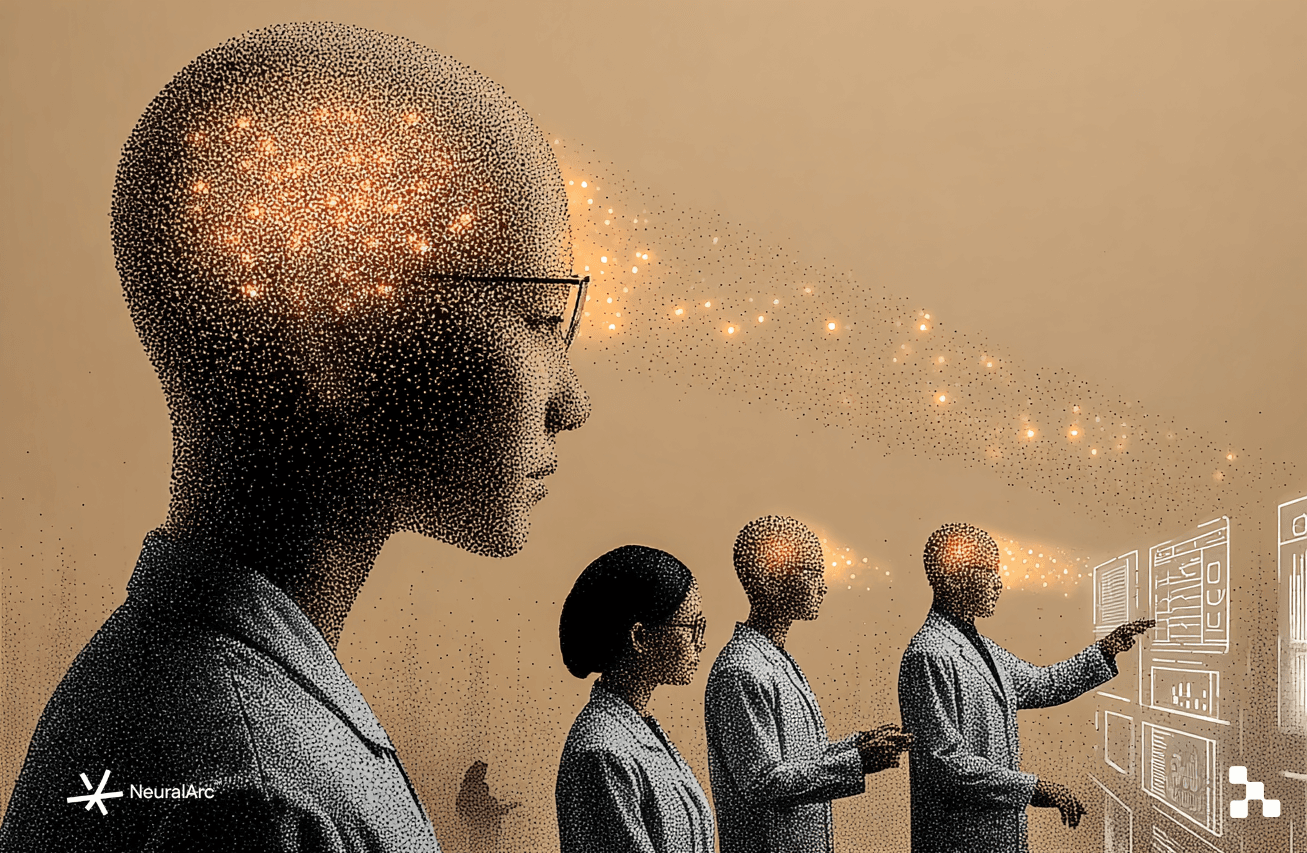Imagine a world where routine tasks are handled effortlessly, complex decisions are made with precision, and personalized experiences are delivered at scale. This isn't science fiction; it's the reality being shaped by the rise of AI agents. These intelligent systems are moving beyond simple automation, evolving into autonomous entities capable of strategic decision-making and complex problem-solving. The shift is profound, marking a new era where businesses are beginning to view AI agents as digital employees – scalable, trainable, and measurable assets poised to revolutionize how we work.
The Evolution of AI Agents
The journey of AI agents from basic automation tools to autonomous systems is marked by significant advancements in machine learning, natural language processing, and reinforcement learning. Early AI systems were primarily rule-based, limited to pre-defined tasks and lacking the ability to adapt to new situations. However, with the advent of machine learning, AI agents began to learn from data, enabling them to improve their performance over time. This shift allowed them to handle more complex tasks and adapt to changing environments.
The development of natural language processing (NLP) has further enhanced the capabilities of AI agents, allowing them to understand and respond to human language. This has led to the creation of chatbots and virtual assistants that can interact with customers, provide support, and even conduct transactions. Furthermore, reinforcement learning has enabled AI agents to learn through trial and error, optimizing their behavior to achieve specific goals. This is particularly useful in areas such as robotics and game playing.
Today's AI agents are sophisticated systems capable of performing a wide range of tasks, from managing customer relationships to optimizing supply chains. They can analyze data, identify patterns, make predictions, and even generate creative content. As AI technology continues to advance, we can expect to see even more powerful and versatile AI agents emerge.
Key Technologies Driving AI Agent Advancement
- Machine Learning: Enables agents to learn from data and improve performance.
- Natural Language Processing (NLP): Allows agents to understand and respond to human language.
- Reinforcement Learning: Enables agents to learn through trial and error and optimize behavior.
- Computer Vision: Allows agents to "see" and interpret images and videos.
AI Agents as Digital Employees
The analogy of AI agents as 'digital employees' is becoming increasingly apt. Like human employees, AI agents can be trained, managed, and evaluated based on their performance. Businesses are leveraging AI agents to automate repetitive tasks, augment human capabilities, and drive innovation. The key advantage of AI agents is their scalability – they can be deployed quickly and easily to handle large volumes of work without the limitations of human resources.
Moreover, AI agents can operate 24/7, providing continuous support and ensuring consistent performance. They can also be trained on specific datasets and algorithms to perform specialized tasks, such as fraud detection, risk assessment, and customer segmentation. By automating these tasks, AI agents free up human employees to focus on more strategic and creative activities.
However, it's crucial to recognize that AI agents are not meant to replace human employees entirely. Instead, they should be viewed as tools that can enhance human capabilities and improve overall productivity. The most successful organizations are those that find ways to integrate AI agents into their existing workflows and create a collaborative environment where humans and AI work together seamlessly.
Benefits of Employing AI Agents
- Increased Efficiency: Automate repetitive tasks and streamline workflows.
- Improved Accuracy: Reduce errors and ensure consistent performance.
- Enhanced Scalability: Handle large volumes of work without the limitations of human resources.
- Cost Reduction: Lower operational costs by automating tasks and reducing labor expenses.
- Data-Driven Insights: Analyze data and provide valuable insights to support decision-making.
"AI agents are not just about automating tasks; they are about augmenting human intelligence and creating new possibilities."
The Future of AI Agents
The future of AI agents is bright, with continuous advancements in technology and increasing adoption across industries. As AI agents become more sophisticated, we can expect to see them take on even more complex and strategic tasks. This will require businesses to invest in training and development programs to ensure that their employees have the skills necessary to work alongside AI agents effectively.
Furthermore, ethical considerations will play an increasingly important role in the development and deployment of AI agents. It's crucial to ensure that AI agents are used responsibly and that their decisions are fair and unbiased. This will require careful attention to data privacy, algorithmic transparency, and accountability.
The rise of AI agents is transforming the way we work and live. By embracing this technology and investing in the skills needed to work alongside AI, businesses can unlock new levels of productivity, innovation, and growth. The key is to view AI agents not as a threat, but as a powerful tool that can help us achieve our goals and create a better future.
The evolution of AI agents from simple automation to autonomous systems marks a major leap forward in artificial intelligence. Their ability to learn, adapt, and make strategic decisions is transforming industries and driving unprecedented efficiency. As businesses integrate these ‘digital employees’ into their workflows, they’re optimizing operations while unlocking new opportunities for innovation and growth. The future belongs to those who embrace the power of AI agents to build a more intelligent, efficient, and forward-thinking world.
